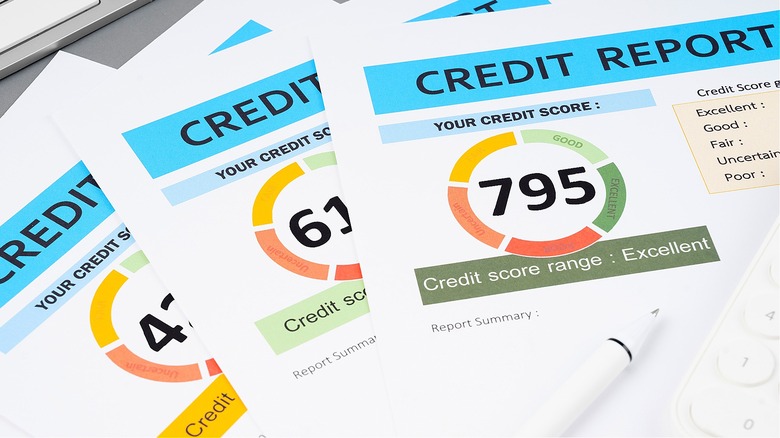Think Twice Before Closing A Credit Card. Here's Why
If you're wondering about how many credit cards you should actually have and thinking you may have one or two too many, and then may be thinking of closing one or more of those cards — maybe stop there and continue to think your card situation through. Once you close a credit card, there's no turning back, which is why you should always look at the bigger credit picture. While in some cases closing a credit card is the right decision, consider what impact losing that card will have on your credit score. Hint: It likely won't help it.
You may have heard that canceling a credit card will hurt your credit score; but, before you go and dismiss it as some credit card myth — know that it isn't. Depending on the card's credit limit and the age of the credit card, you could be taking away valuable pieces of your credit score's calculation. Specifically, a closed credit card is going to impact your credit utilization. As it grows, your credit score will lose points.
Credit cards and credit utilization
FICO and VantageScore are the two credit scoring systems consumers are most familiar with, particularly FICO. Both credit scores use a range of 300 to 850 points, and credit ratings ranging from Bad/Poor to Excellent/Exceptional. How responsibly you use your credit determines where in the range you fall, and changes to the various elements of each calculation will affect your score, either positively or negatively. In the case of closing a credit card, this could raise your credit utilization, a ratio that accounts for 30% of a FICO score and 20% of a VantageScore.
Financial experts say that it's best to keep a credit utilization ratio below 30%, and ideally below 10%. To calculate credit utilization, simply total your balances and divide it by your total credit. For example, if your credit limit is $10,000, and your balances total $1,500, your credit utilization ratio is 15%. If, however, you close your credit card with the highest credit limit — $5,000 — and your balance only goes down by $200, your new credit utilization will be 26%.
More considerations when closing a credit card
In addition to your credit utilization ratio, closing a credit card will also change the length of your credit history; though this is more for VantageScore than FICO, as FICO counts closed accounts in its calculation as well. VantageScore does not, though, so if you were to close a credit card, and it happens to be one with a long history like seven years, you could be changing your credit age by a good number. For example, if you have three credit cards — 7.1, 3, and 2 years — and you decide to close the oldest one, your credit age would go from 4.1 years (and building) back to 2.5 years. For VantageScore, length of credit history counts for 20% of a score, while for FICO, it's 15%.
So, when thinking about closing a credit card, it's prudent to consider how this action will change your credit score. If you do want to pare down the number of credit cards you have, though, you can start with the newest card, which also likely has a lower credit limit. Understandably, you might also want to close a credit card if your experience with the issuer isn't positive. Further, if the card has a high annual fee, but you don't use it enough to justify paying it, then closing makes sense.
This said, if it is because of a high annual fee or APR, you may want to reach out to the company first to request a lower fee or downgrade to a card with no annual fee. You could also, once you've zeroed out its balance, keep the credit card open but relegate it to a "once in a while" card.


